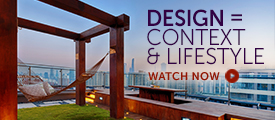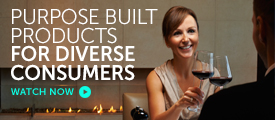Last month Marriott opened two new AC Hotels, ‘bringing the brand’s European design and style to the UK for the first time.’ Earlier this year the Grand Hyatt Rio De Janeiro opened. Hyatt had employed an internationally acclaimed interior designer in order to ‘set a new standard of luxury’. Meanwhile Starwood is a majority investor of Design Hotels™, a selective membership group for original and extraordinary hotels.
Why is design such a big selling point for these major groups? As our experts discuss in these videos, it can be a vital aspect of brand relevancy:
Marriott’s two new hotels are a 142-room AC Hotel Manchester Salford Quays and The 90-room AC Hotel Birmingham City Centre, situated at The Mailbox shopping area. According to Marriott the AC brand is ‘based on a belief that purposeful design can enrich lives’. Each hotel features a Lounge and a Library. One area is designed to be a lively hub other designed as a quite space, but both intended to offer a place for creativity and socialisation.
Internationally acclaimed interior designer Yabu Pushelberg, designed the accommodation at Grand Hyatt Rio de Janeiro in Brazil with the local assistance of Brazilian designer firm Anastassiadis Arquitetos. Also, acclaimed Brazilian architect Arthur Casas designed 3 signature restaurants for the property. Hyatt says that, ‘the hotel is meticulously designed to exemplify the Grand Hyatt brand’s signature level of grandeur with an abundance of options for creating spectacular experiences.’
The Design Hotels™ website allows you to search and book a holiday from a specially selected listed properties. It says that more than 400 hotels apply for membership with Design Hotels™ each year, but only about 5 percent of them are approved. Elements that influence this decision are ‘thought-provoking design and architecture; integration into the local scene; a strong identity; cultural and environmental responsibility; and the people behind the property’, among other factors.
If you’ve been sent to this page and you’re not yet on the circulation list to receive these regular briefings and you would like to sign up, you can do see here. It’s free.
Video clips produced by ybc.tv for the Hospitality Channel, including interview from industry conferences such as the IHIF conference as well as specific Hospitality Channel shoots.




